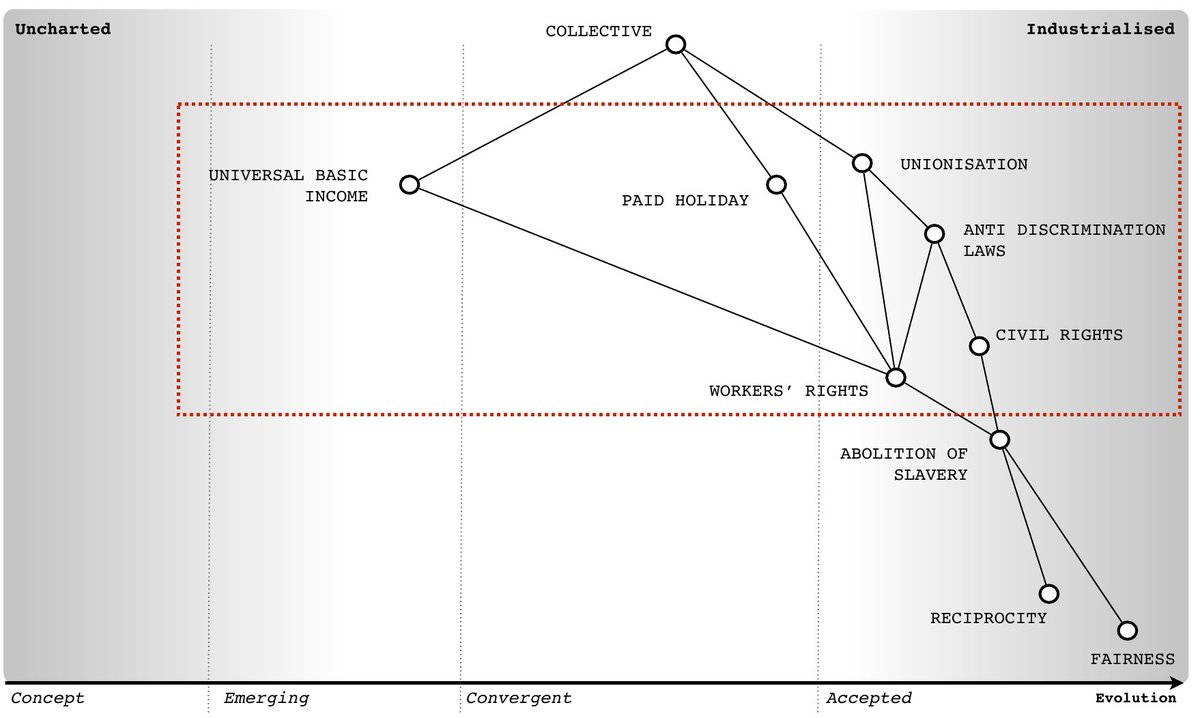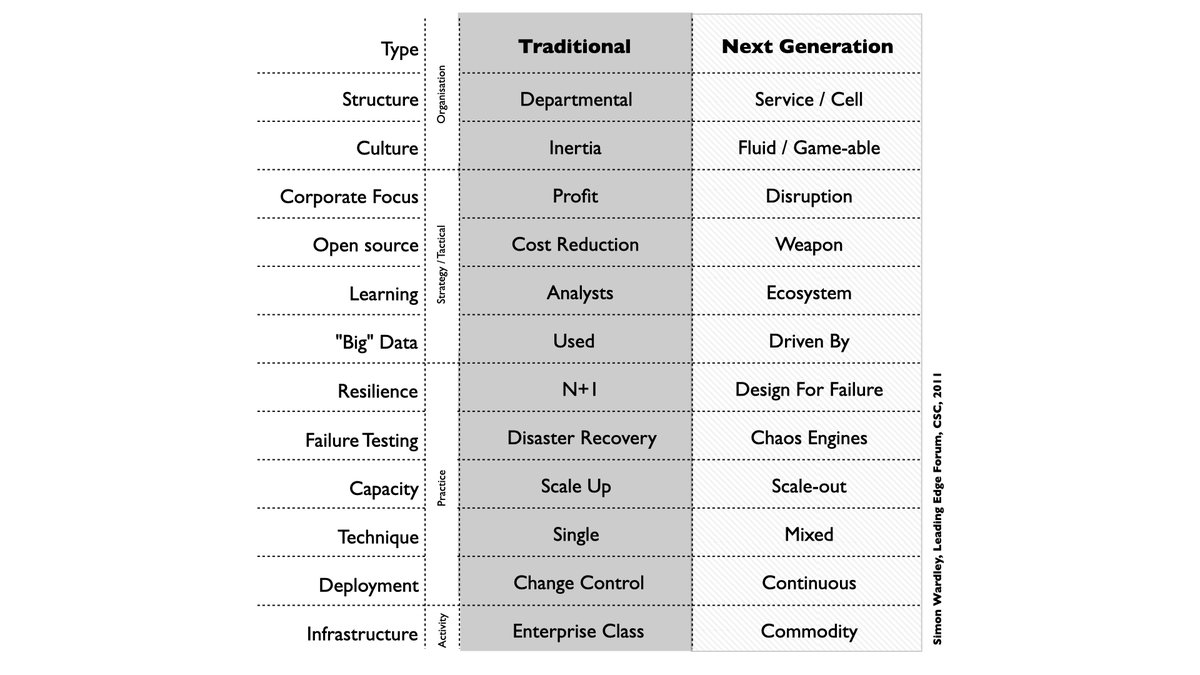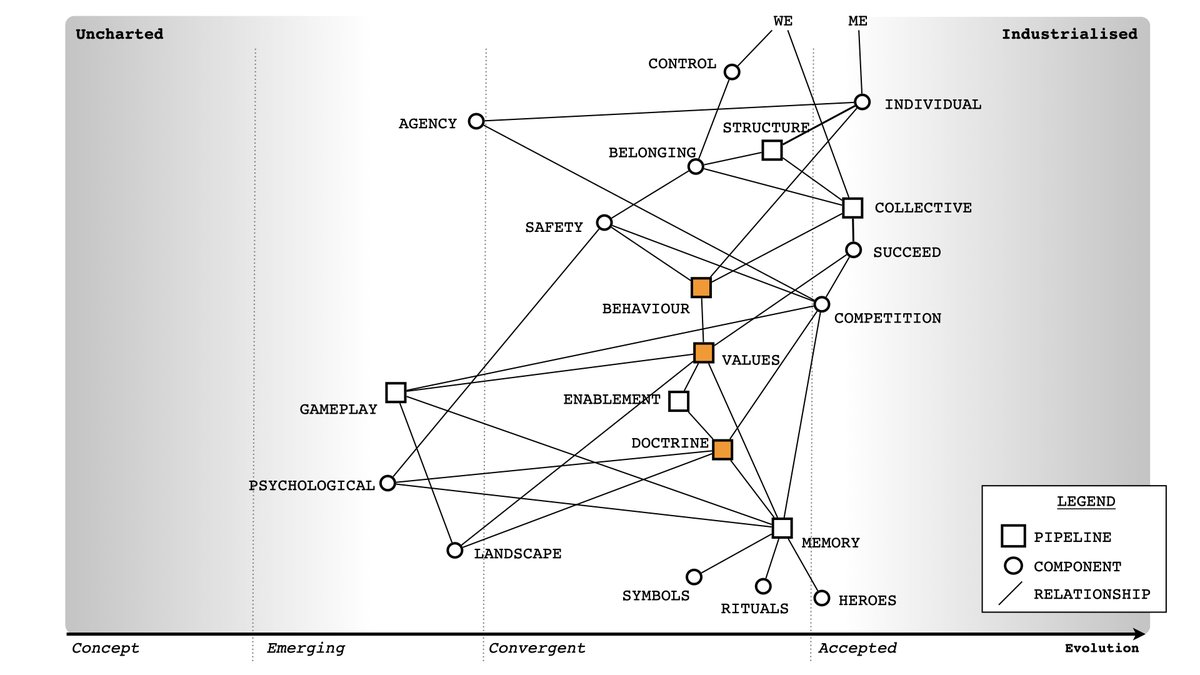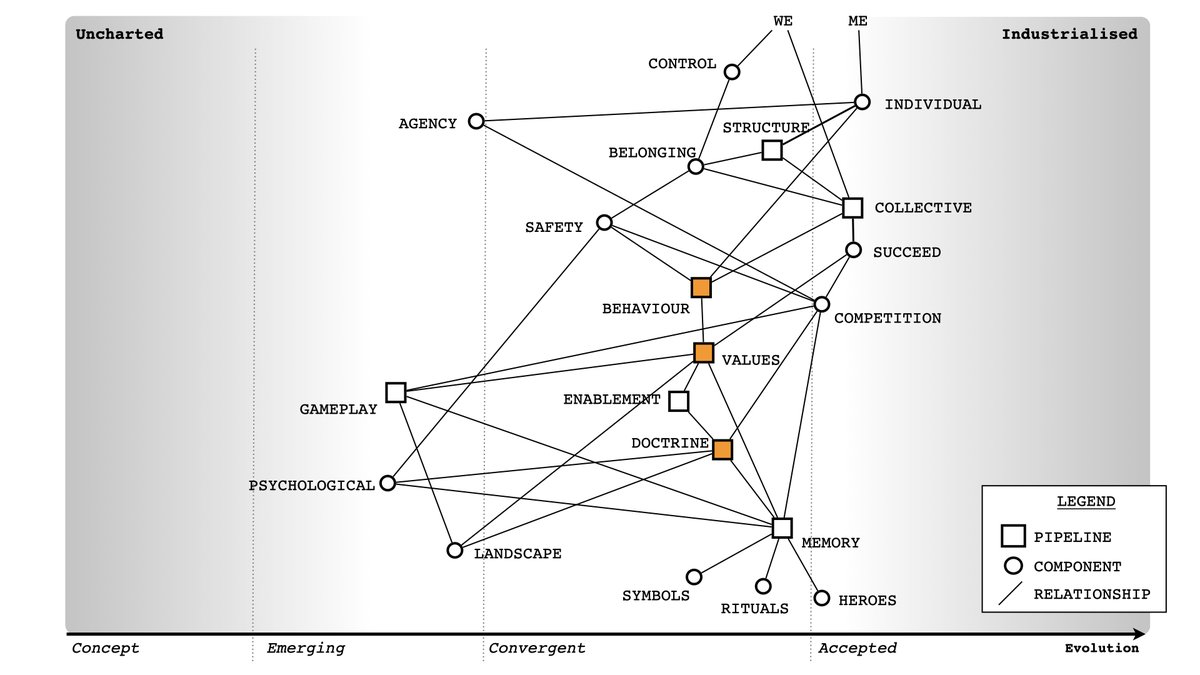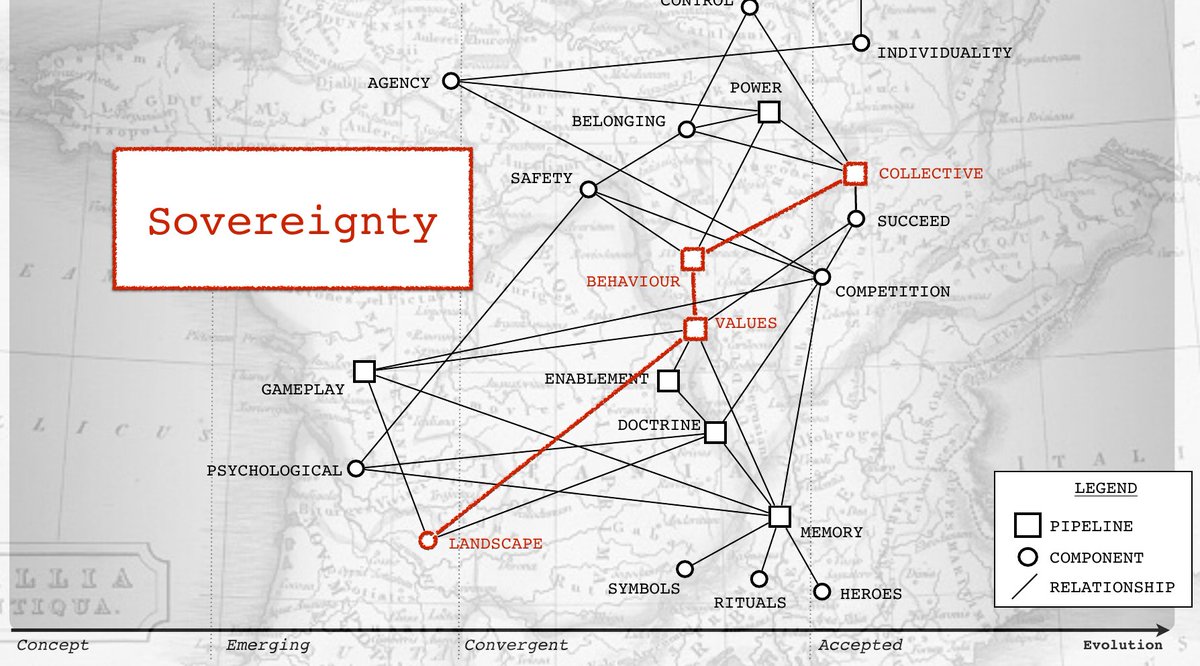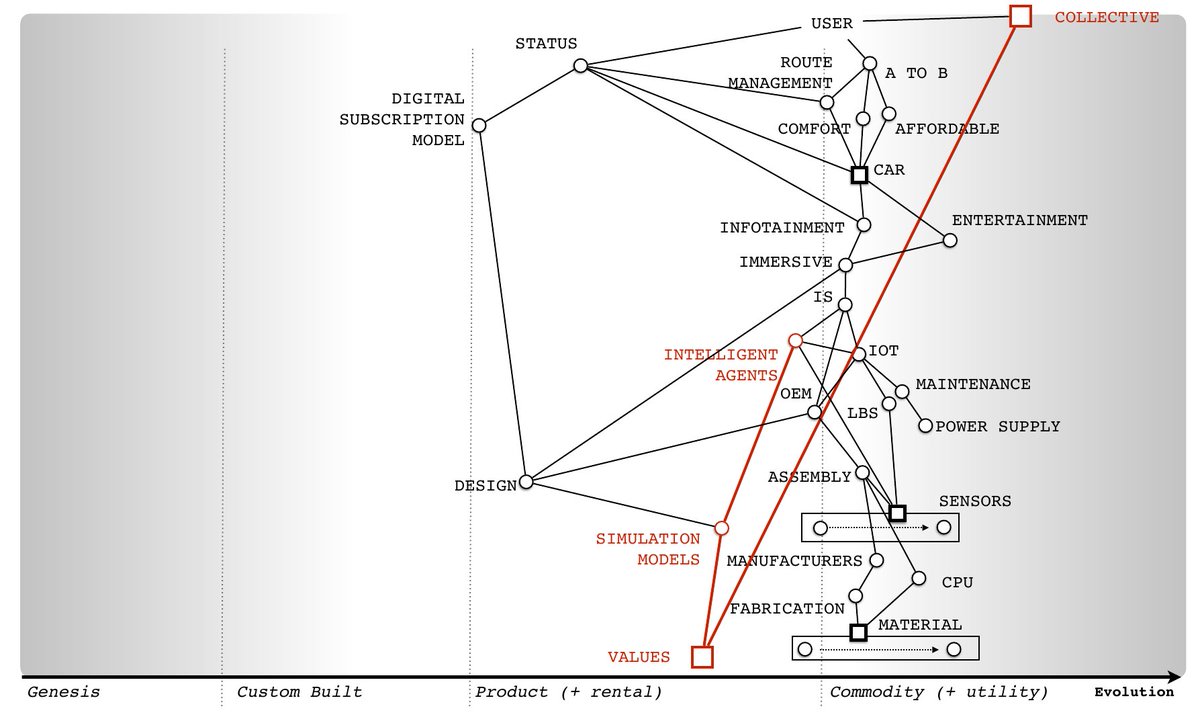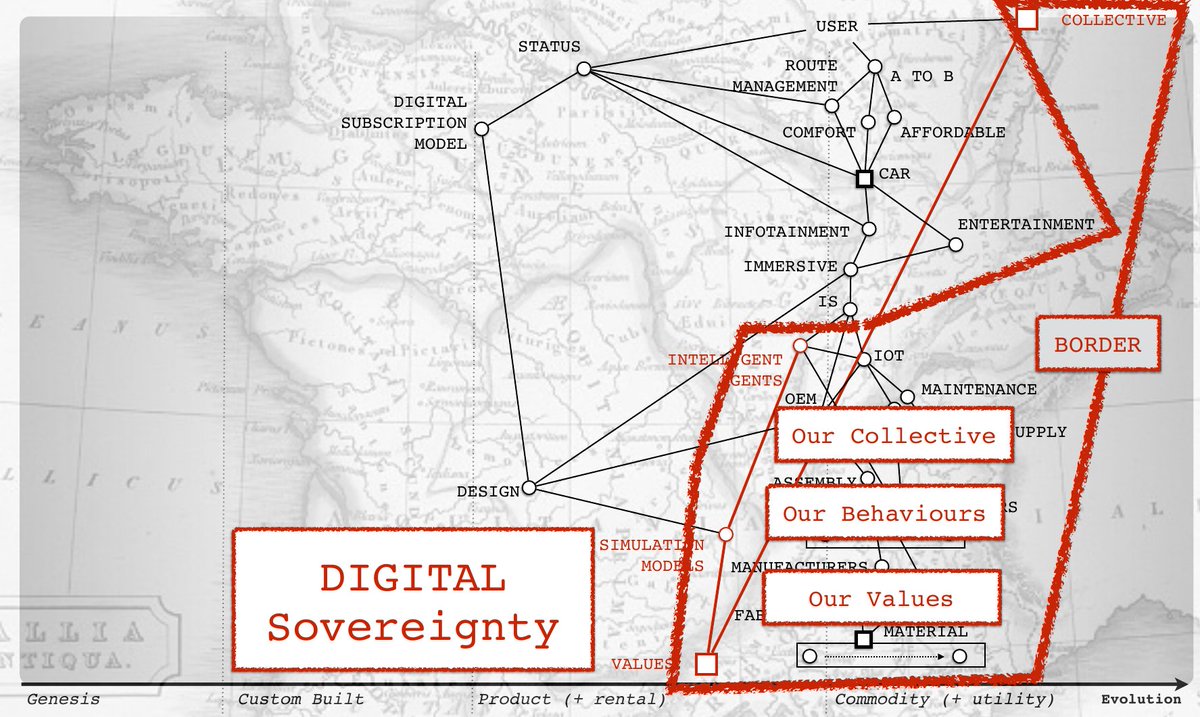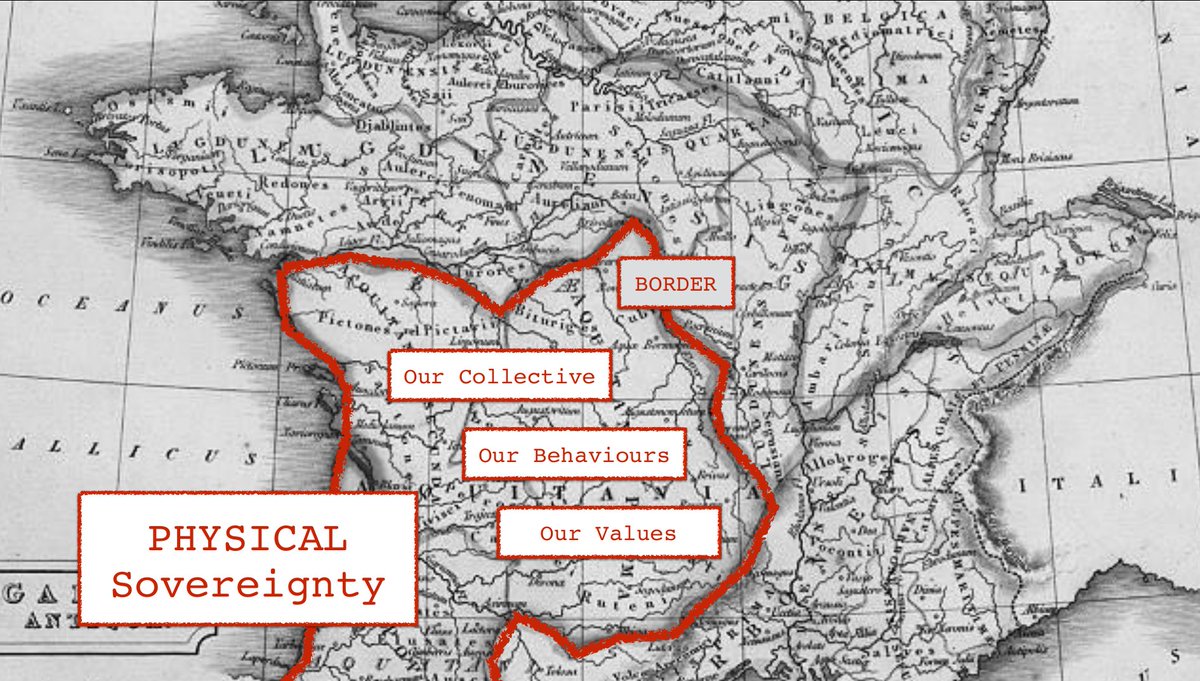X : In your culture map ...
Me : This one?
X : Yep, that one. Where are things like music, fashion etc?
Me : Enablement systems.
X : What are those?
Me : Mechanisms by which we spread and control the perception of our values.
X : Explain ...
Me : This one?
X : Yep, that one. Where are things like music, fashion etc?
Me : Enablement systems.
X : What are those?
Me : Mechanisms by which we spread and control the perception of our values.
X : Explain ...
... enablement systems include everything from the town hall meeting to the online propaganda campaign. The music and fashion industries are routinely used throughout history to promote values or suppress values from the once popular protest song to the bland misdirection.
X : Bland misdirection?
Me : Feel good songs take your mind of things that are happening. Don& #39;t underestimate the role of music, fashion and the entire creative arts in enslaving a population.
X : They are expressions of freedom!
Me : Only when that& #39;s a value of your collective.
Me : Feel good songs take your mind of things that are happening. Don& #39;t underestimate the role of music, fashion and the entire creative arts in enslaving a population.
X : They are expressions of freedom!
Me : Only when that& #39;s a value of your collective.
X : Hence it should be possible to use music, fashion and creative arts to determine what a collective values?
Me : Well ... more precisely, what values and associated behaviours are being promoted. Values (i.e. beliefs) aren& #39;t static, they evolve and new values emerge.
Me : Well ... more precisely, what values and associated behaviours are being promoted. Values (i.e. beliefs) aren& #39;t static, they evolve and new values emerge.
X : The two are different?
Me : Always. What the collective truly believes and what is being promoted will always have difference. No collective is uniform i.e. some of the values are accepted, others less so. There is always a spectrum.
Me : Always. What the collective truly believes and what is being promoted will always have difference. No collective is uniform i.e. some of the values are accepted, others less so. There is always a spectrum.
X : Fashion?
Me : Conformity or individuality?
X : Promotion of one or the other?
Me : Promotion of many beliefs into the collective. Ditto the importance of institutions like Hollywood.
X : Hollywood as a control mechanism?
Me : Crudely ... I prefer enablement system.
Me : Conformity or individuality?
X : Promotion of one or the other?
Me : Promotion of many beliefs into the collective. Ditto the importance of institutions like Hollywood.
X : Hollywood as a control mechanism?
Me : Crudely ... I prefer enablement system.
X : That would imply the importance of Government control in such systems.
Me : Again, crudely ... that happens, frequently in history. Think of it as more Governing control. The boundary between Government and Commercial interests can be quite ... amorphous ... at times.
Me : Again, crudely ... that happens, frequently in history. Think of it as more Governing control. The boundary between Government and Commercial interests can be quite ... amorphous ... at times.
X : It& #39;s about power?
Me : Not directly. Power is more about the collective, its values, its success, the sense of belonging and safety within it. Enablement systems are more a tool that you use to reinforce and promote specific values (i.e. beliefs) and associated behaviours.
Me : Not directly. Power is more about the collective, its values, its success, the sense of belonging and safety within it. Enablement systems are more a tool that you use to reinforce and promote specific values (i.e. beliefs) and associated behaviours.
X : So, art is basically a tool used to promote or suppress values in a society?
Me : Basically. I prefer enablement system and there are many from the townhall to the propaganda poster.
X : I thought art was about questioning?
Me : It can be, if you want to promote that value.
Me : Basically. I prefer enablement system and there are many from the townhall to the propaganda poster.
X : I thought art was about questioning?
Me : It can be, if you want to promote that value.
X : So what values are being promoted in the UK?
Me : Personally, I& #39;d start by taking a look at the UK top 10 singles, the films, books and fashion items being released / promoted heavily.
X : And?
Me : I don& #39;t have time to do that. I& #39;ve other things to deal with.
Me : Personally, I& #39;d start by taking a look at the UK top 10 singles, the films, books and fashion items being released / promoted heavily.
X : And?
Me : I don& #39;t have time to do that. I& #39;ve other things to deal with.
X : So what are you doing?
Me : I& #39;m looking for the change of practice over the next decade caused by industrialisation in tech. I& #39;m trying to cheat the uncertainty barrier known as "the future" ... again. Not easy. Tricky fella.
X : I& #39;m not sure I follow.
Me : Ok ...
Me : I& #39;m looking for the change of practice over the next decade caused by industrialisation in tech. I& #39;m trying to cheat the uncertainty barrier known as "the future" ... again. Not easy. Tricky fella.
X : I& #39;m not sure I follow.
Me : Ok ...
... technology industrialises (Cause), as a result we see a co-evolution of practice (Next Gen) vs Traditional. Some of it is pontification, some of it is real (hence Example). Those changing practices have a common meaning (i.e. architecture or structure) and ...
... some of the practices are universally useful principles, much is context specific. I& #39;m currently sorting through this.
X : How do you know if technology has industrialised?
Me : Great question. You don& #39;t. You can cheat with weak signals to give a timeframe ...
X : How do you know if technology has industrialised?
Me : Great question. You don& #39;t. You can cheat with weak signals to give a timeframe ...
... based upon aggregate of actors action (i.e. market actions) but the specific timing boils down to individual actors actions which you can& #39;t predict. BUT ... you can sometimes detect those new practices (using population genetics) which then confirms the technology change.
X : Example?
Me : Cloud and DevOps, Serverless and FinOps. That& #39;s how you know the stuff is real. But it& #39;s not easy.
X : Why?
Me : Snakeoil i.e. vendors saying you can have "cloud" without rearchitecting your systems etc. The real value is in the practice not the tech.
Me : Cloud and DevOps, Serverless and FinOps. That& #39;s how you know the stuff is real. But it& #39;s not easy.
X : Why?
Me : Snakeoil i.e. vendors saying you can have "cloud" without rearchitecting your systems etc. The real value is in the practice not the tech.
X : Enterprise cloud?
Me : Exactly. All the benefits of cloud with none of the re-architecting and change of practice ... it& #39;s complete nonsense, pure snakeoil, misses the point.
Me : Exactly. All the benefits of cloud with none of the re-architecting and change of practice ... it& #39;s complete nonsense, pure snakeoil, misses the point.
X : So you& #39;re looking at serverless practices?
Me : No, I did that years ago. Ditto cloud but that was 2010. Here& #39;s the table if you& #39;re interested - I published in 2011. I& #39;m looking at what practices will matter 2020-2030.
Me : No, I did that years ago. Ditto cloud but that was 2010. Here& #39;s the table if you& #39;re interested - I published in 2011. I& #39;m looking at what practices will matter 2020-2030.
X : Today. my company doesn& #39;t even use though practices from 2010.
Me : That& #39;s normal, many are far behind. It& #39;s ok as long as your competitors are the same. However, I bet you& #39;re talking more about that Next Gen stuff today.
X : Yes, I definitely recognise terms.
Me : That& #39;s normal, many are far behind. It& #39;s ok as long as your competitors are the same. However, I bet you& #39;re talking more about that Next Gen stuff today.
X : Yes, I definitely recognise terms.
Me : Well, back in 2010/2011 there were huge companies that today are scrambling to do those "next gen" things that were more "that& #39;s all startup nonsense".
I& #39;m currently working on creating the new table for 2020-2030. Think of it as the next "next gen".
I& #39;m currently working on creating the new table for 2020-2030. Think of it as the next "next gen".
X : What is a pipeline?
Me : A compressed map often with OR (v) not AND (^)
i.e.
power -> coal v gas v solar v nuclear v (some new thing not invented)
compared to
cup of tea -> cup ^ tea ^ hot water
There can be many pipelines.
Me : A compressed map often with OR (v) not AND (^)
i.e.
power -> coal v gas v solar v nuclear v (some new thing not invented)
compared to
cup of tea -> cup ^ tea ^ hot water
There can be many pipelines.
I use it to explicitly call out that this component is actually a constantly evolving stream of components (i.e. a pipeline).
Things we believe (i.e. our values) are a piepline of evolving components.
Things we believe (i.e. our values) are a piepline of evolving components.
X : What do you think of containers?
Me : WTF? What is this? 2012? A lot of container related stuff falls into the category of "you can have the benefits of cloud but just like the past i.e. no major re-architecting" ditto virtual data centre concepts ... it misses the point.
Me : WTF? What is this? 2012? A lot of container related stuff falls into the category of "you can have the benefits of cloud but just like the past i.e. no major re-architecting" ditto virtual data centre concepts ... it misses the point.
Me : Technology is just a tool, ditto market economics, ditto art. These are not the things that matter ... sorry ... it& #39;s those universally useful practice (i.e. the principles or collectively known as doctrine), the values (i.e. beliefs) and the behaviours that matter.
X : Where is technology in your culture map?
Me : It& #39;s part of the landscape which brings us onto digital sovereignty and the importance of maps for determining borders but ... I& #39;ve got other things I need to do. Another day.
Me : It& #39;s part of the landscape which brings us onto digital sovereignty and the importance of maps for determining borders but ... I& #39;ve got other things I need to do. Another day.
X : You& #39;ve gone from fashion to culture to technology to practices to serverless to sovereignty all using maps?
Me : Point?
X : Is there anything maps don& #39;t do?
Me : They won& #39;t tell you what to do. They& #39;re an imperfect (useful) and wrong (model) way of looking at a landscape.
Me : Point?
X : Is there anything maps don& #39;t do?
Me : They won& #39;t tell you what to do. They& #39;re an imperfect (useful) and wrong (model) way of looking at a landscape.
X : Can you give an example of digital sovereignty?
Me : Ok, but I really need to get on. How we embed our (or other) collectives values into the training systems of self driving cars. We need to decide where we want our collective, our values, our behaviours to operate.
Me : Ok, but I really need to get on. How we embed our (or other) collectives values into the training systems of self driving cars. We need to decide where we want our collective, our values, our behaviours to operate.
... a key part of sovereignty is understanding where your borders are or where you wish them to be. That& #39;s almost impossible to determine without maps. Alas, most digital sovereignty discussions these days have no maps and endless blah, blah, blah stories. Next to useless.

 Read on Twitter
Read on Twitter
